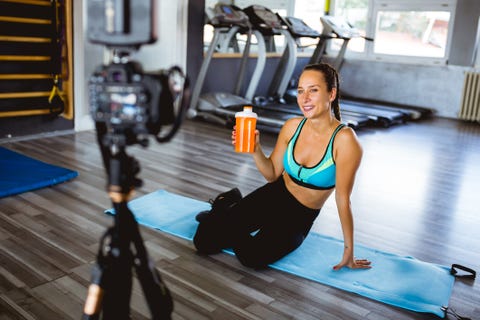You’ll Never Believe How Often Weight Loss Advice from Influencers Is Dead Wrong
Researchers at the University of Glasgow recently combed through the Internet’s most popular UK weight-loss blogs to determine how much of the advice is good advice.
Want to take a guess? How many of the bloggers out of 10 delivered helpful and safe guidance on weight loss and nutrition? Six? Four? Two?
Nope.
One.
The researchers graded each social influencer based on transparency, trustworthiness, nutritional soundness, and their use of research-backed references. After analysis, the vast majority of influencers didn’t have the kind of nutrition credentials needed to give good advice.
Another problem: The influencers posing as experts were also taking cash on the side.
“Influencers are paid to leverage their social media followings to promote a brand, product or belief. This is all well and good, as long as the content they create and the opinions they share are legitimate and well-informed,” says Katie Andrews, M.S., R.D., owner of Wellness by Katie. “Getting a root canal doesn’t make you qualified to give one; eating food and going to the gym doesn’t make you qualified to speak on the subjects as an expert.”

Getty Images
The researchers of the UK study also analyzed meals recommended by the bloggers. What they found: many of the meals were not nutritionally balanced—either failing in terms of calories, carbohydrates, protein, fat, fiber, sugar, or in multiple areas.
Although the pool of influencers assessed in this study was fairly small (14 in total), the research spotlights an underlying big-picture problem. If the influencer you follow on Instagram looks amazing, but gives bad advice for looking amazing yourself, how can you tell if they’re actually following their own advice?
So what should you do during your next late-night Instagram scroll-athon? (First, don’t scroll at that hour, but that’s another soapbox of mine.)
Conduct a background check.
“A basic Google search is easy to do and will quickly reveal the individual’s background,” says Andrews. Look to see if the Influencers has qualifications—such as a degree (M.D., Ph.D., and/or R.D. are ideal) from an accredited school, or a certification or title from a national agency—that would at least give them some ‘trustworthiness’ around the topic they’re speaking about.

Getty Images
I don’t think most influencers necessarily have bad intentions. But take their advice with a grain of Himalayan Pink sea salt (you know, like influencers try to convince you to purchase because of the health benefits) and understand that diet and lifestyle changes can have a lasting impact on your health—for the better or worse.
Source: Read Full Article
